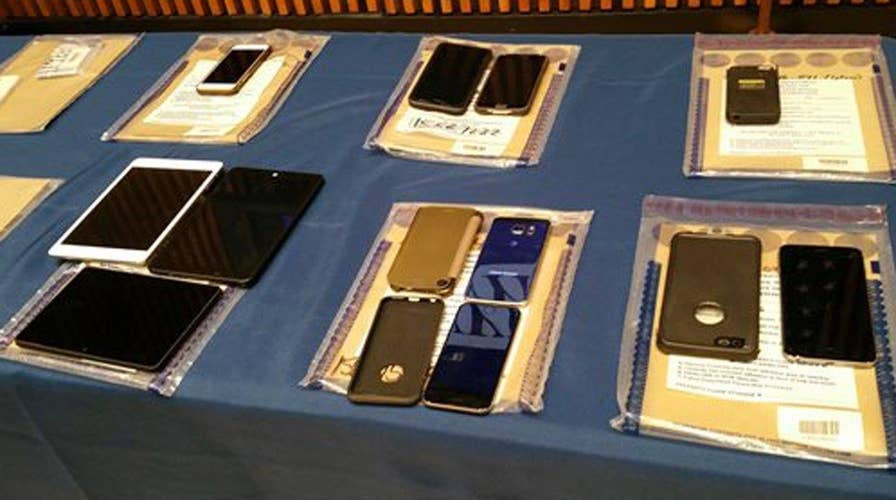How Apple's feud with FBI could end up before SCOTUS
Catherine Herridge reports on 'Special Report'
FBI Director James Comey said late Sunday that the agency owed the victims of last December's San Bernardino terror attack a "thorough and professional investigation" in an effort to explain why law enforcement officials are trying to compel Apple to help them gain access to a cellphone owned by one of the gunmen.
In a post on the Lawfare blog, Comey wrote that the FBI "can't look the survivors in the eye, or ourselves in the mirror, if we don't follow this lead."
The post was Comey's first public statement since Apple CEO Tim Cook announced that the company would fight a federal magistrate's order to help the FBI hack into Syed Farook's work-issued iPhone. Farook, along with wife Tashfeen Malik, killed 14 people in the Dec. 2 attacks.
On Friday, the Justice Department filed a motion to compel Apple to comply with the court order. Early Monday, Cook sent an email to Apple employees saying that the FBI should withdraw its demand.
In the message, subject-lined "Thank you for your support," Cook states that the company has "no tolerance or sympathy for terrorists" and believes abiding by the judge's order would be unlawful, an expansion of government powers, and would set a dangerous precedent that would essentially create a backdoor to the encrypted iPhone.
"This case is about much more than a single phone or a single investigation," Cook wrote, "so when we received the government's order we knew we had to speak out."
"At stake is the data security of hundreds of millions of law-abiding people and setting a dangerous precedent that threatens everyone's civil liberties."
Apple also points to the difficulty of keeping such a "master key" safe once it has been created. The government has said that Apple could keep the specialized technology it would create to help officials hack the phone -- bypassing a security time delay and feature that erases all data after 10 consecutive, unsuccessful attempts to guess the unlocking passcode. This would allow the FBI to use technology to rapidly and repeatedly test numbers in what's known as a brute force attack.
If the company's engineers were to do as ordered, Apple would do its best to protect the technology, but Cook said the company "would be relentlessly attacked by hackers and cybercriminals."
In his blog post, Comey had written, "The San Bernardino litigation isn't about trying to set a precedent or send any kind of message. It is about the victims and justice.
"The relief we seek is limited and its value increasingly obsolete because the technology continues to evolve," Comey continued. "We simply want the chance, with a search warrant, to try to guess the terrorist's passcode without the phone essentially self-destructing and without it taking a decade to guess correctly. That's it."
Comey did acknowledge in his statement that the clash has laid bare a tension between privacy and security. But he said that divide should not be resolved by the FBI nor "corporations that sell stuff for a living."
"It should be resolved by the American people deciding how we want to govern ourselves in a world we have never seen before," he said.
Cook's question-and-answer posting acknowledged that it is technically possible for Apple to do what the judge ordered, but that it's "something we believe is too dangerous to do." U.S. Attorney Robert L. Capers said Friday that Apple has followed court orders to unlock phones at least 70 times in various cases.
Apple has until Feb. 26 to file its opposition to the initial order.
The Associated Press contributed to this report.









































